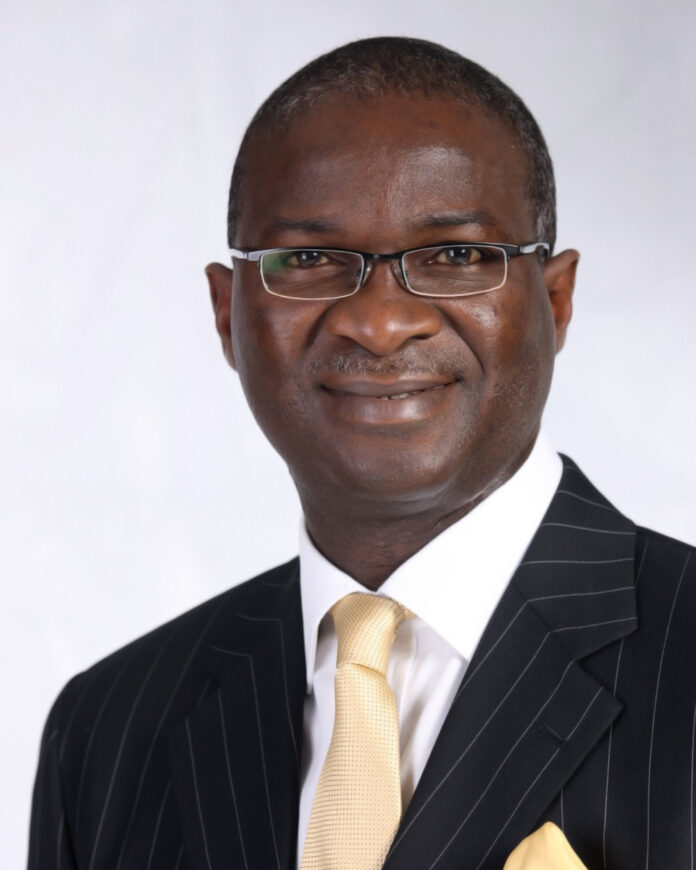Minister of Works and Housing, Mr. Babatunde Fashola, SAN, has said infrastructure development, maintenance and management were the core of the President Muhammadu Buhari administration’s strategy for growing the Nigerian economy, creating jobs and prosperity and lifting people out of poverty.
Fashola stated this last week in his Goodwill Message at the Plenary Session of the National Infrastructure Summit organised by the Nigerian Society Engineers (NSE) held at Nicon Luxury Hotel, Abuja.
The Summit has as its theme: “Towards a Sustainable Infrastructure Development, Maintenance and Management in Nigeria”.
According to the Minister, the stock of infrastructure and the commitment to grow them is the real measure of a nation’s desire for growth and prosperity, pointing out that since a nation cannot grow bigger than the capacity of its infrastructure, “President Buhari’s commitment to infrastructure leaves no one in doubt about his desire to rapidly grow Nigeria’s economy”.
“The outline of that infrastructure development is made clear by the fact that the Ministry of Works and Housing is currently managing over 800 contracts for roads and bridges covering over 13,000 kilometres of the 35,000 plus kilometres of Federal Highways and Bridges”, he said..
Fashola also said in every state of Nigeria today, there is a road project, a bridge project or a housing project or all combined under construction, which, according to him, “is a critical driver for employment of professionals for design, surveys and construction practitioners”.
“It also galvanizes other sectors like mining for gravel, sand, laterite, crushed stones to mention a few, while it drives the demand and supply of lubricants like diesel, and oils, as well as bitumen production and supply.
“The transport sector is also driven by the need to ferry these inputs across distances from production sites to construction sites by thousands of trucks employing drivers.
“At the construction sites, the urban poor earn their daily living from supply of skilled and unskilled labour by working the materials to finished products. But this is only a small piece of the pie. Design, construction and governance account for only about 30 per cent of jobs in the Built Industry. It is maintenance and operation that provides 70 per cent of the sustainable jobs long after construction has ended”, he stated.
The Works and Housing Minister said this was why the Buhari administration must take the credit for approving the first ever ‘FGN Facility Management and Maintenance Policy’ in March of 2019, adding that implementation is now bearing fruits with 24 Federal Secretariats now fully rehabilitated and under a facility management contract.
He disclosed that 37 Bridges nationwide were now undergoing maintenance and repairs, some of which have been due for decades.
He further disclosed that some projects recommended for development in the 2013 National Integrated Infrastructure Master Plan “have now taken off, are progressing, nearing completion or have been completed”.
The projects include: The Lagos –Ibadan, Enugu – Port Harcourt , Abuja- Kano, Kano- Maiduguri, Enugu- Onitsha, Oyo – Ogbomosho, Ilorin –Jebba, Abeokuta – Ibadan , Calabar – Itu , Second Niger Bridge, Ikom Bridge, Loko –Oweto Bridge, Ibi Bridge and Bamenda – Mfun Bridge, Chanchangi Bridge, and Bodo Bonny Bridge.
The Buhari government, the Minister stated, has now commenced the process of developing a new Infrastructure Master Plan up to 2030 and this has progressed significantly.
“I have no doubt in my mind about the positive direction Nigeria’s economy is heading with these investments in Infrastructure. They are the key to reduced journey times, to efficient and competitive productivity arising from the ease of doing business”, he said.
Commending the NSE on the theme of this year’s Summit, Fashola remarked: “If this was a shooting competition, I would say that the NSE has hit the Bull’s Eye with the theme.






















